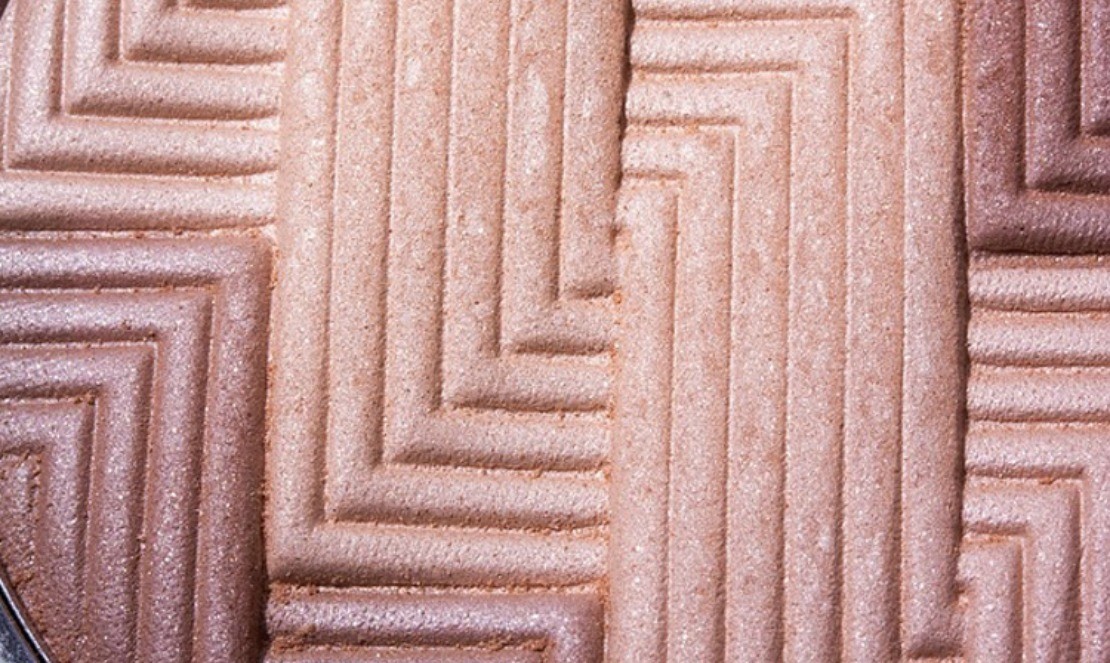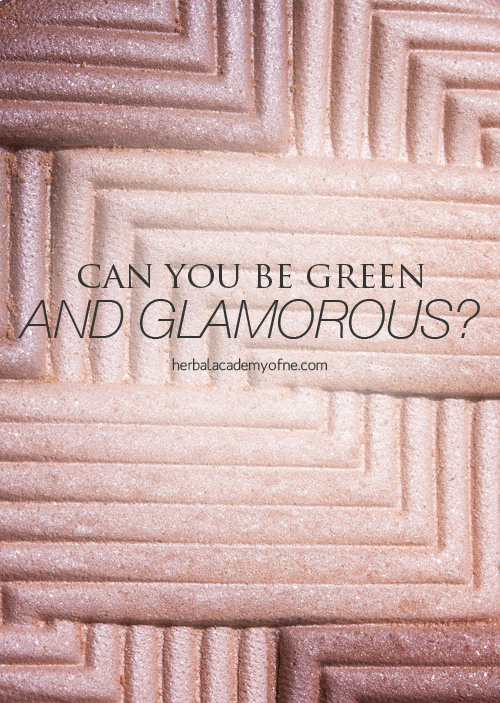
Can You Be Green and Glamorous? Part II
Editorial Note: This is the second part of a two-part post focusing on the use of cosmetics and personal care products. This post examines natural products and environmental impacts; the first part explored the subject of animal testing and cruelty-free alternatives.
For many people, the idea of natural health and beauty products conjures up images of hippies bathing in a river while brushing their teeth with baking soda on a twig. And while this may have once been the case, it certainly isn’t anymore.
There has been an explosion of wonderful natural and organic products to hit the market. You can get high-quality, effective natural products for your hair, face, body, and household that reduce your impact on your body and the environment.
Who is Keeping Us Safe?
Our skin is our largest organ; therefore whatever we put on our skin gets absorbed into our body through this organ. It is so important to take care of our skin and make what we put on our bodies as important as what we put in our bodies.
Although anything classified as a drug is regulated by the Food and Drug Administration (FDA), “products intended to cleanse or beautify are generally regulated as cosmetics. Some examples are skin moisturizers, perfumes, lipsticks, fingernail polishes, makeup, shampoos… toothpastes, and deodorants. These products and their ingredients are not subject to FDA premarket approval…” (FDA, 2014).
Furthermore, products considered cosmetic/drug combinations — deodorants with antiperspirant, toothpastes with fluoride, and makeup/moisturizers with SPFs — that are reviewed by the FDA are allowed to contain certain chemicals in what the FDA calls “small amounts.”
How to Protect Yourself
Since there is no specific no governing body reviewing what we put on our face and body, it is up to the companies making products to test their ingredients and deem them safe or not.** The good news is that there are consumer watch groups helping to educate and prepare us as consumers.
There is myriad information on ingredients and possible harmful health effects. While common in cosmetic and personal care products, ingredients such as pthalates, parabens, triclosan, and glycol have checkered reputations at best (TreeHugger, 2014). For example, there has been a large amount of research and writing dedicated to concerns over the use of aluminum and parabens in antiperspirants and deodorants and links to cancer (Kimble, 2014.) Look for products researched and/or certified by such groups as the Environmental Working Group, Natural Products Association, ECOCERT, and others.

What Exactly Is Natural, Anyway?
While definitions vary, natural products must contain ingredients found in nature — flora, fauna, and mineral — that are from renewable sources, pose no human health risks, and are biodegradable. They must not contain chemical or synthetic ingredients. Again, due to variances is definitions and standards of “naturalness,” be sure to conduct research and read labels carefully. For example, a certified natural product may contain 95% natural ingredients with 5% from other sources. The Natural Products Association is a good source of information on natural standards, regulations, and certifications.
Be sure to note that “natural” does not necessarily mean organic, cruelty-free, or vegan. The term “organic” is often overseen by different certifying bodies, and just as there is confusion in the food industry, so is there in the cosmetic and personal care industries. See the resources below for more information on natural, organic, and both.
Impacts on the Environment
When you take a shower or brush your teeth, the remnants of your products flow down the drain with the water. All of this ends up in the waste water stream and must be filtered out. Water treatment plants are wonderful in that they safely clean and treat our water; however they require large amounts of energy and money to do so.
Using natural products reduces the amount of toxins and chemicals that must be filtered out of the waste water stream. In recent year, there has been a huge influx of “microbeads” in many face and body scrubs. Rather than being made of nut or seed shells, salt or sugar, they are essentially small pieces of plastic. And, since most waste water treatment filters are not designed to handle them, this plastic ends up in water sources, contributing to pollution and “plastic oceans” (Beat the Microbead, n.d.). Sticking with natural scrubs is better for you and the planet — who wants to scrub their skin with polyethylene, anyway?!
Small Steps, Positive Impacts
When you take a look at the big picture, you realize that what you put out into the world comes back around again. The fewer chemicals and contaminants you use in daily life, the less you are adding to your body and the environment. If everyone makes some effort to live a more natural life in harmony with the planet, it can have a huge positive impact on the world.
** Editorial Note: It is important to point out that not all natural products are necessarily cruelty-free and vice-versa. There is often a great overlap as many socially responsible companies care about human health and animal welfare. For more information on animal testing and cruelty-free alternative, please refer to part one of this post.
This post is written by Melissa Salce. Melissa is a writer, editor, and crafter with more than 15 years of professional writing experience. Passionate about animal rights and the planet, she launched Don’t Worry, Be Earthy as a way to help others help the world. Her work has appeared in Interior Design magazine, Shore Line Times newspaper, and various newsletters and trade publications.

Resources
Environmental Working Group – Skin Deep
Campaign for Safe Cosmetics
ECOCERT
Natural Product Association
BDIH/IONC
True Friends of Natural and Organic Cosmetics
References
Beat the Microbead (n.d.) Microplastics: Scientific Evidence, Retrieved from www.beatthemicrobead.org/en/science.
FDA (2014). Cosmetics Safety Q&A: Personal Care Products. Retrieved from www.fda.gov/Cosmetics/ResourcesForYou/Consumers/ucm136560.htm.
Kimble, Richelle. April 7, 2014. Antiperspirant “Pit-Falls”: Reasons to Change to Natural Deodorant Retrieved from http://womenslifestyle.com/antiperspirant-pit-falls-reasons-to-change-to-natural-deodorant/.
Natural Cosmetics News. (n.d.) Dangerous Chemicals in Deodorant & Antiperspirant: A Detailed Review of the Chemicals, Research & Avoidance Tips. Retrieved from www.naturalcosmeticnews.com/toxic-products/dangerous-chemicals-in-deodorant-antiperspirant-a-detailed-review-of-the-chemicals-research-avoidance-tips/.
Treehugger. (2014). Everything You Need to Know about Natural Skin Care, June 23, 2014. Retrieved from www.treehugger.com/htgg/how-to-go-green-natural-skin-care.html.







